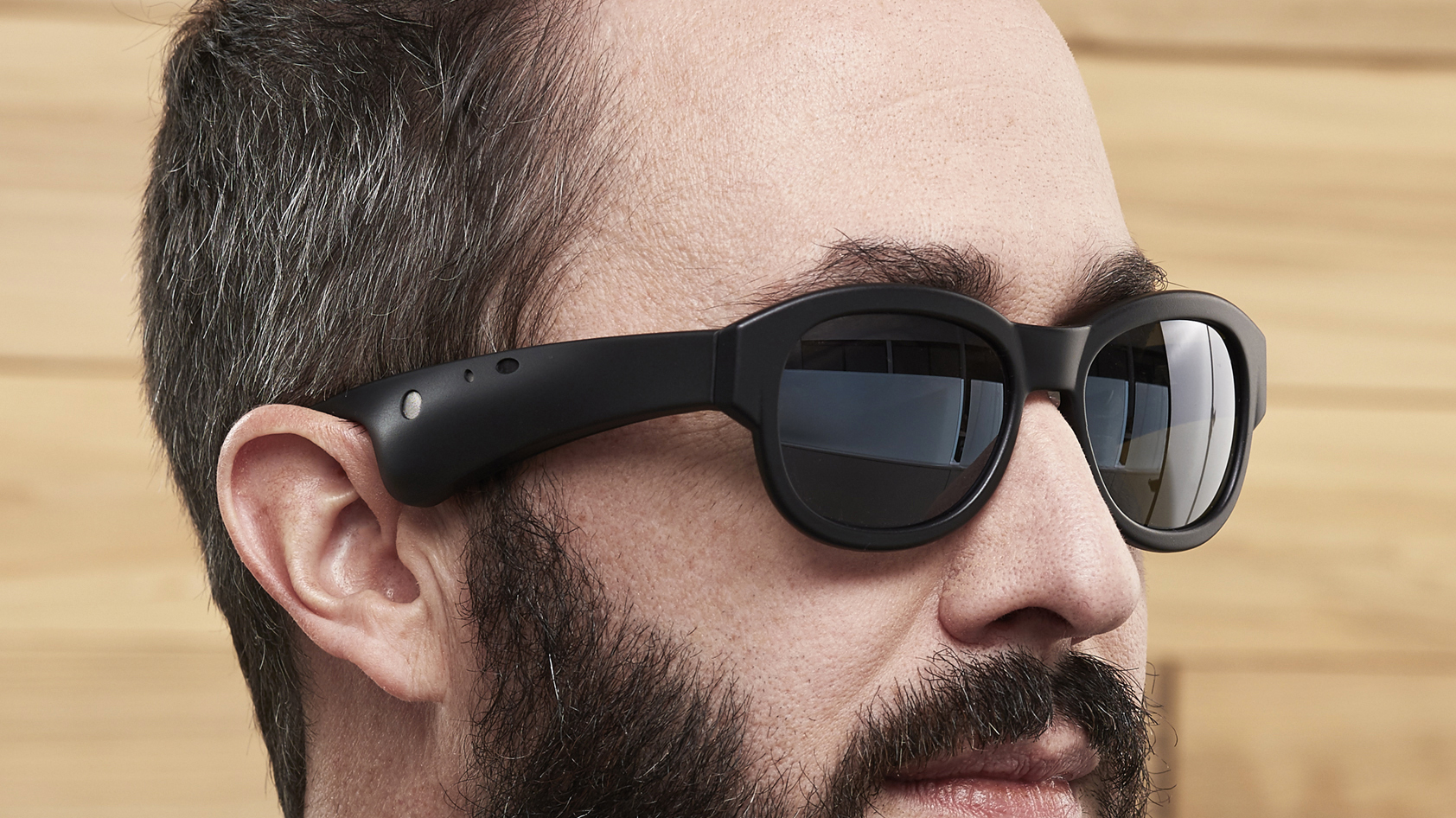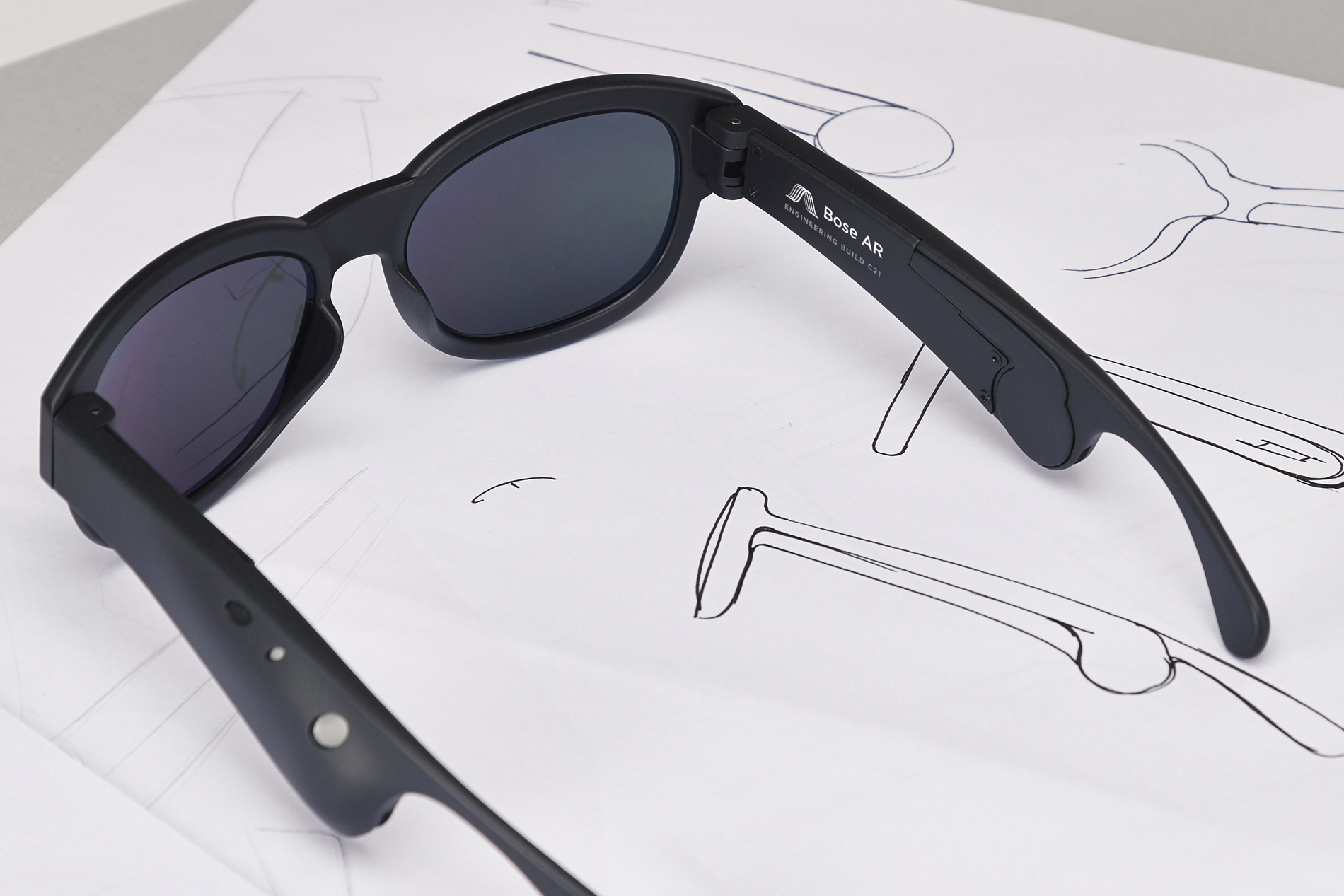All products featured are independently chosen by us. However, SoundGuys may receive a commission on orders placed through its retail links. See our ethics statement.
Bose announces augmented reality platform at SXSW
March 13, 2018

In a surprise announcement, Bose took the wraps off of a new augmented reality (AR) platform at the South by Southwest Conference in Austin, TX. Where most other AR platforms have focused on visual augmentation, Bose’s system predictably leans on audio.
The Bose AR prototype is a set of smart glasses that pack a tiny audio system in the arms of the specs. However, this package is small enough to be put into other packages, like headphones, a hat, or a car dashboard. Though the glasses themselves are a bit bulky, this is merely the first iteration of the hardware.

If you’ve ever tried an AR system that added a heads-up-display to your glasses, you may have grown annoyed with the visual clutter that litters your field of view. With Bose’s system, no visual elements obscure your vision. Instead, the glasses will feed you audio to augment what you perceive in your surroundings. For example, in conjunction with your location data, you could take an audio tour of a city wearing nothing but your Bose AR glasses. Alternatively, you could make location-based playlists, translate the conversation around you like a Babel fish, or manipulate music playback with your head.
While the applications for a sound-based AR platform haven’t been fully realized yet, Bose made its AR glasses plenty capable with gesture control, voice assistant support, Bluetooth, and a full range of motion sensors. Currently, Bose is already partnered with several outlets to develop applications for this platform, as well as a handful of academic institutions like the MIT Media Lab.
With Bose's system, no visual elements obscure your vision. Instead, the glasses will feed you audio to augment what you perceive in your surroundings.
If you’re interested in developing apps for the Bose AR platform, the company plans to invest up to $50 million in startups to develop applications for its platform. Additionally, the software development kit (SDK) will be available in the summer of 2018.